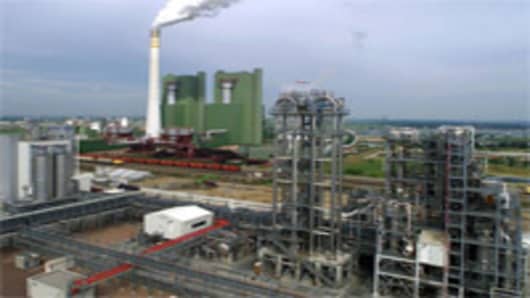Producers of liquid natural gas, which is super-chilled and safely transportable, also stand to suffer until more exports are permitted by the federal regulators.
Cheniere Energy recently became the first company to win federal regulatory approval in three decades. But the winds on export policy may soon shift direction. The Blackstone Group is providing a large chunk of the financing.
The industry and Wall Street see new opportunities.
“If we don’t export it, Canada will,” says Robert S. Morris, who covers natural gas production and exploration as a managing director at Citigroup Investment Research.
Disclosures:
Subath Chandra at Jefferies says he “does not believe” Jefferies has any conflicts related to the companies he discussed. He personally owns shares in Halcon Resources (HK) and Magnum Hunter Resources (MHN), neither of which was mentioned in my story.
Regarding Ann Duignan’s recommendations:
J.P. Morgan currently has, or had within the past 12 months, the following company(ies) as clients: Westport Innovations, Cummins Inc., and PACCAR Inc.
J.P. Morgan currently has, or had within the past 12 months, the following company(ies) as investment banking clients: Westport Innovations Inc., Cummins Inc. and PACCAR Inc.
J.P. Morgan received in the past 12 months compensation for investment banking from Westport Innovations Inc., Cummins Inc. and PACCAR Inc.
J.P. Morgan expects to receive, or intends to seek, compensation for investment banking services in the next three months from Westport Innovations Inc., Cummins Inc. and PACCAR Inc.
J.P. Morgan has received compensation in the past 12 months for products or services other than investment banking from Cummins Inc. and PACCAR Inc.
Robert S. Morris of Citigroup holds a long positions in Chesapeake Energy, EOG Resources and Canadian Natural Resources. For more on the firm's business activities, click here.



